The results are surprising, Quality Score and Cost Per Click are more clearly correlated when you look at Exact Match keywords.
close

E-E-A-T, originally called E-A-T, originated from the Google Rater Guidelines. It is among the factors that determine a webpage's quality rating. E-E-A-T stands for experience, expertise, authoritativeness, and trustworthiness.
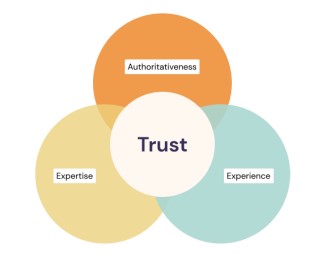
The Page Quality Score refers to EEAT, and depending on your topic, a given Page Quality Rating can have an outsized effect on a given pages rank.
The Page Quality Rating is a quantitative measure of EEAT, and it is scored similarly to the Needs Met Rating. Google notes that it uses a number of factors, but specifically two informetric scoring systems to determine a given pages rank, the Needs Met Rating and Page Quality Rating.
Google has stated that the results from rater guidelines are used to train the algorithm. Therefore, EEAT, Page Quality, and the Needs Met Rating are important ranking factors. The Page Quality Rating can be thought of as a standard quantitative measure of the quality of a page's content.
The screenshots below were taken from a presentation by Paul Haar, Senior Google Search Engineer, "The Life of a Query, How Search Actually Works."
Note the slide that shows a ranked result based on both the "Needs Met Rating" and the "Page Quality Rating."
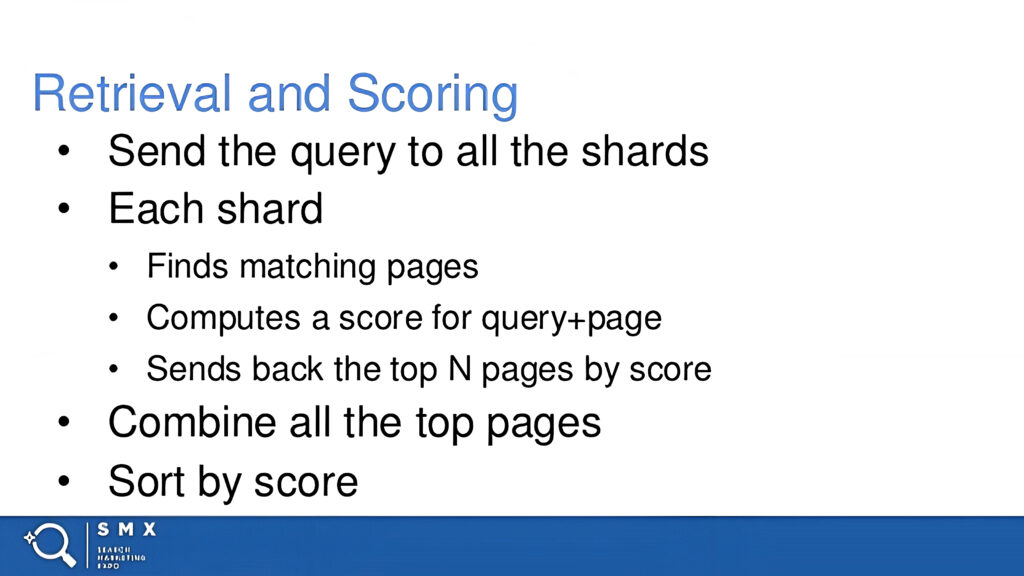
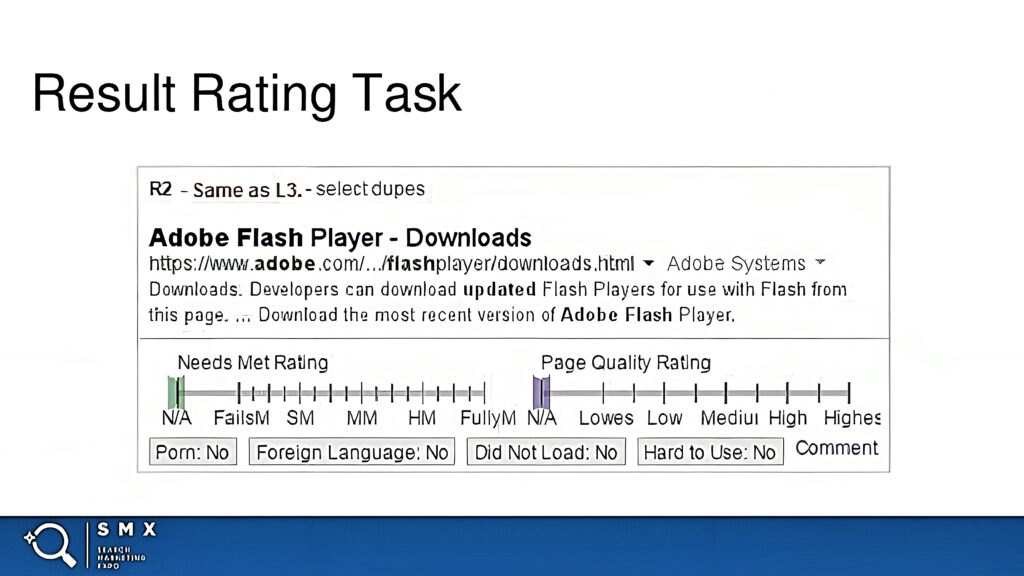
While there is still some debate among SEO experts about whether or not E-E-A-T is a direct ranking factor in Google's search algorithm, it is clear that it is a critical component of the overall quality rating of a website.
In some instances, like in "The Curious Case Of My Dad's Website Outranking Rocket-Mortgage," where my dad's website had a DR of 0 and outranked a site with 6.4 million links, E-E-A-T is an obvious ranking factor.
Based on what is publicly stated by Google, relevance scoring is actively used by the index, the exact metrics that define that system are not entirely transparent.
The Google Rater survey results are translated into engineering tasks that help define quality, the equivalent of describing an abstract concept like consciousness.
What that looks like means many different things to many people. Notably, computers are unable to form subjective opinions about anything. Thus, the Page Quality Score must be an attributable factor that can be quantified and measured.
The purpose of EEAT is to distinguish credible content from less trustworthy content. We recognize that certain websites can exhibit expertise. For instance, a Wiki with appropriate credentials can be deemed trustworthy, authoritative, and expert. Additionally, we acknowledge that an expert tone is akin to the academic style utilized in encyclopedias; this tone was employed to train Google's BERT.
However, the wikiHow page mentioned below fulfills the fundamental E-A-T criteria, yet it receives a low-quality rating in the Google Rater Guidelines.
The justification given is that "there is no indication that the author possesses financial expertise."
The following screenshots of a wikiHow webpage were taken directly from the Google Rater Guidelines in December 2022. The following would qualify as a YMYL topic, so credentialed expertise is critical.
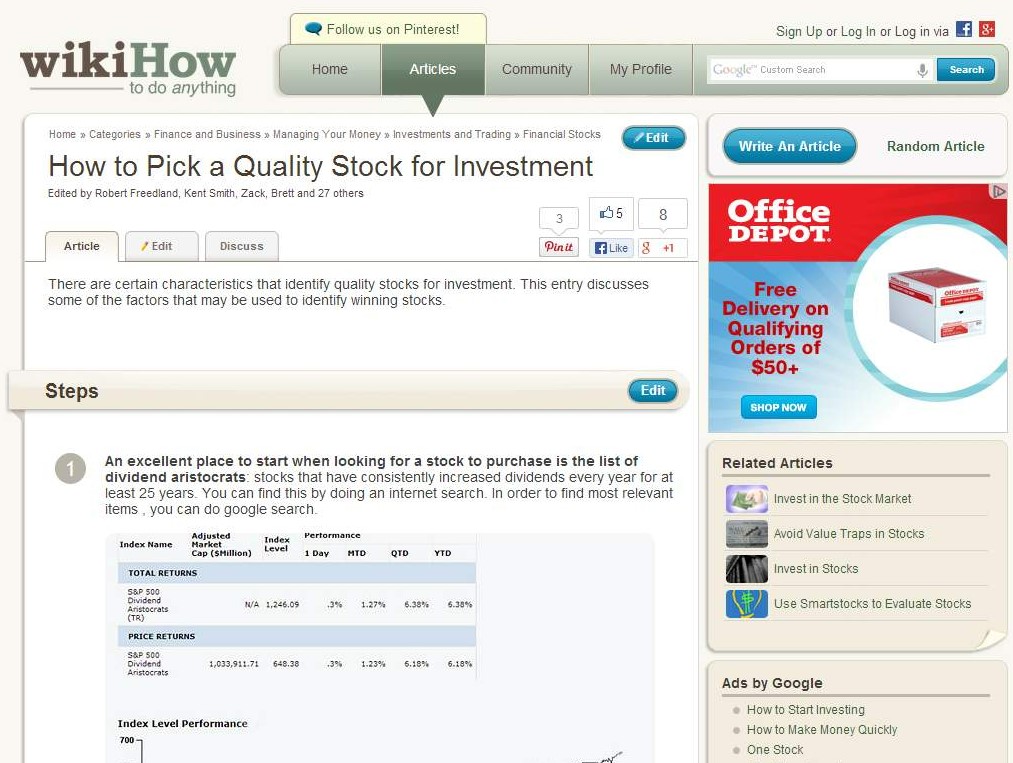
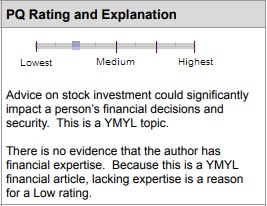
Notably, Google collects and stores information about each contributor.
So Google knows whether each of the 31 authors is an expert in the field, irrespective of whether or not it's visible on the webpage.
Interestingly, the page received a low-quality rating solely because the author's expertise was not apparent.
Here are some key takeaways:
Google assesses the E-E-A-T of a website by looking at many different factors. According to the Google Rater Guidelines, E-E-A-T is determined by the following.
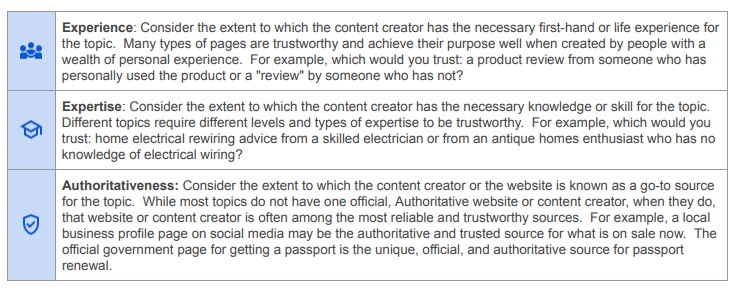
T stands for trust; the idea is that experience, expertise, and authoritativeness equate to trust.
The Google Rater Guidelines include various sections that guide raters to evaluate websites based on certain criteria. For instance, they are instructed to assess a site's reputation on Google and assign a trust rating accordingly. They are also directed to evaluate how well a page aligns with what the user is searching for and assign a score accordingly.
Furthermore, the guidelines explicitly instruct raters to scrutinize a website and its authors for any negative sentiment by using search modifiers like "site:yourdomain.com reviews." Additionally, raters are advised to assign a low-quality rating to content connected with a website or author that has a negative reputation.
The definitions of E-E-A-T from Google include the following.
The perspectives shared on the web are most trustworthy when that information comes from qualified experts, leaving some room for content written by unqualified experts to provide experience-based advice.
However, if an author or entity is both unqualified and inexperienced, they probably should not be writing about whatever they are writing about. Experience entails involvement in the subject, not reading about the subject.
I've put together a chart for users to determine where their EEAT might fall based on an author or site's credentials and experience.
| Expert Experience | Inexperienced | |
| Qualified | Qualified-Expert Right Job Title, Right Degree | Qualified non-expert Right Degree, Wrong Job Title |
| Unqualified | Unqualified-Expert No Degree, Right Job Title | Unqualified non-expert Wrong Degree, Wrong Job Title |
Pages on YMYL topics can be created for a wide variety of different purposes. If the purpose of a page on a clear YMYL topic is to give information or offer advice, a high level of expertise may be required for the page to be trustworthy.
(Search Quality Rater Guidelines, 2022, p. 28)
At the center of E-E-A-T is trust, and content written by qualified experts is generally more trustworthy.
Content on authoritative sites, like a Hosptial or Government site, is more trustworthy. Considering this concept objectively without leaving room for assumptions is the best advice one can give on how to demonstrate E-E-A-T.
Deciding whether an entity is an expert is less subjective than SEOs want to believe. For example, reading 200 articles about a subject might make a given author knowledgeable. But, there is a fundamental difference between an unqualified expert and a qualified expert.
A site or author can meet most of the necessary EEAT criteria. Still, if the entity produces content about topics that are best left to qualified experts, the content should receive a low-quality rating.
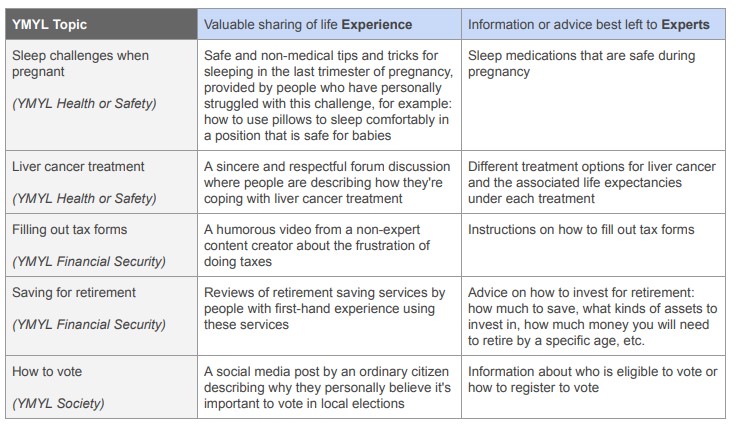
There are objective measures for expertise and experience, such as titles, degrees, and certificates; several factors can be considered when assessing whether an entity has the requisite knowledge and skills to be an expert.
These can include formal education and training, years of experience in the field, and recognition from other experts or industry organizations. Placing these objective measures on your website or in an author's byline is one of the best ways to demonstrate a given entity's E-E-A-T.
Note: Pages that share first-hand experience are still valuable. There are some caveats to that, though.
Pages that share first-hand life experience on clear YMYL topics may be considered to have high E-E-A-T as long as the content is trustworthy, safe, and consistent with well-established expert consensus. In contrast, some types of YMYL information and advice must come from experts.
(Search Quality Rater Guidelines, 2022, p. 28)
In the most extreme cases, particularly where it applies to YMYL topics, expertise is easily quantifiable and verifiable partially because the Government made laws requiring professionals in specific high E-E-A-T fields to display their credentials on association websites and directory listings publicly.
Such websites are the American Bar Association, American Medical Association, FINRA, and institutional directories.
It is straightforward for a bot or user to verify whether a given author is a legitimate expert in the subject beyond the usage of bylines. That is the point, EEAT should be both simple to prove and hard to fake for both users and bots. It should also be clear on a given page that a user is an expert in the field.
Think of the Rater Guidelines as a user survey that verifies that Google is showing the right SERPs.
Similarly, websites can join organizations that add trust and authority, and reviews services like Yotpo are only the start. There are countless organizations, such as franchise organizations, trustworthy payment processing systems, 3rd party certifications, and societies.
The first step to improving your E-E-A-T is to tell visitors who you are.
This includes information about the company, who owns or manages the website, and what products and services it provides. It can also be helpful to have relevant details about any affiliations with third parties or other websites, as this can help establish a sense of trust. And finally, adding user reviews or testimonials can help demonstrate your authority and authenticity to potential customers..
Some biases are apparent by taking a step back, for example, during the 80s, when tobacco companies paid researchers to find the health benefits of tobacco. It is hard to argue that there was no bias.
One of the most critical aspects of E-E-A-T is demonstrating to users that you are a legitimate and authoritative source. This can be accomplished by including contact information and details about the company, such as who owns or manages the website, their customers, and what products or services they provide. There are countless organizations, such as franchise organizations, trustworthy payment processing systems, 3rd party certifications, and societies that help build trust.
An anonymous webpage with anonymous owners and authors is not the pinnacle of trust.
Another critical element of E-E-A-T is producing quality content that is well-researched, accurate, and engaging. This can be achieved by using industry-standard sources of information, including expert-written content, scientific studies, white papers, and other authoritative documents.
The author's byline noted that the most effective way to demonstrate trust is through titles, credentials, and experience. If there is no author, then a strong about page explaining the site's purpose and why anyone would trust it works as well.
Many professionals are legally required to publicly display certifications on websites, such as the American Bar Association, American Medical Association, FINRA, and institutional directories.
One of the best ways to demonstrate expertise and authority is to work with experts in your field to create content. This can include securing interviews and quotes from thought leaders, academics, and other authorities. And with the rise of blogging, more and more experts are starting to blog, which can help you find an expert who may be interested in creating content. And even if you can't find someone interested in writing a post themselves, you may be able to secure a quote or interview with a relevant expert.
Another excellent way to demonstrate your authority is by getting customer testimonials, reviews, and ratings. This can help potential customers see that other people trust you, and it also provides them with an additional level of trust since they see that others they know and trust also trust you. Consumers commonly use sites like Yelp and Google Reviews to see whether a product or service is trustworthy, which is why companies need to manage their online reputations.
Another essential factor to consider is your online reputation. Google and other search engines are becoming increasingly sophisticated, meaning that they're paying attention to how people interact with your website and the content you create. For example, if you write a blog post that gets a lot of negative feedback, you might appear less authoritative and less trustworthy. Additionally, make sure to regularly monitor social media mentions of your brand, as negative comments and tweets could also harm how your website appears in search engine results.
The incredible power of online information has helped democratize the market by enabling anyone with a computer and an Internet connection to start a content-marketing campaign. But with this power comes responsibility - businesses are responsible for creating honest and trustworthy content. One way to do this is to ensure that your content is based on facts, evidence, and data.
If you want to create content that will be seen as authoritative, then one of the first steps is to focus on what you know best. Many businesses try to cover all the bases by writing about every possible topic related to their niche. And while it may seem like a good idea at first, it can be tough to be an expert on everything in your niche. So, instead of trying to write about
We touched on some of the most important factors that Google considers when assigning search engine rankings. But one thing to note is that no individual element decides your website's ranking. Instead, the complexity and number of factors involved in determining rank mean it's difficult to pinpoint precisely how much each contributes to a website's ability to rank high.
Essentially, the better you create high-quality content and build your website around usability and audience/user needs, the more likely you are to rank well in search engines. However, remember that this is not a short-term, one-time task. Search engine optimization is an ongoing effort, and you must continually update your site and add new content to maintain your rankings. In addition, as the Internet continues to evolve, so will the factors that Google uses to determine your website's search engine ranking.
Search Quality Rater Guidelines. (2022, December 15). https://support.google.com/. static.googleusercontent.com
/media/guidelines.raterhub.com/en
//searchqualityevaluatorguidelines
The results are surprising, Quality Score and Cost Per Click are more clearly correlated when you look at Exact Match keywords.
I love WordPress for its customizations. Styling code snippets enhances user perceptions. Copy and paste the code below to style your WordPress code blocks.
The code snippet plugin changed my life. I no longer edit the raw PHP files to add simple functions like titles to users' profiles.
By restructuring your account and using hyper-targeted ad text, CPA can be reduced.
YMYL stands for "Your Money or Your Life." Google uses YMYL to help understand if a web page's main content could impact people's safety, health, or financial well-being.
With slight modifications to Optinmonster's native A/B testing capabilities, it becomes an excellent CRO testing tool.

The results are surprising, Quality Score and Cost Per Click are more clearly correlated when you look at Exact Match keywords.
I love WordPress for its customizations. Styling code snippets enhances user perceptions. Copy and paste the code below to style your WordPress code blocks.
The code snippet plugin changed my life. I no longer edit the raw PHP files to add simple functions like titles to users' profiles.
By restructuring your account and using hyper-targeted ad text, CPA can be reduced.
YMYL stands for "Your Money or Your Life." Google uses YMYL to help understand if a web page's main content could impact people's safety, health, or financial well-being.
With slight modifications to Optinmonster's native A/B testing capabilities, it becomes an excellent CRO testing tool.
